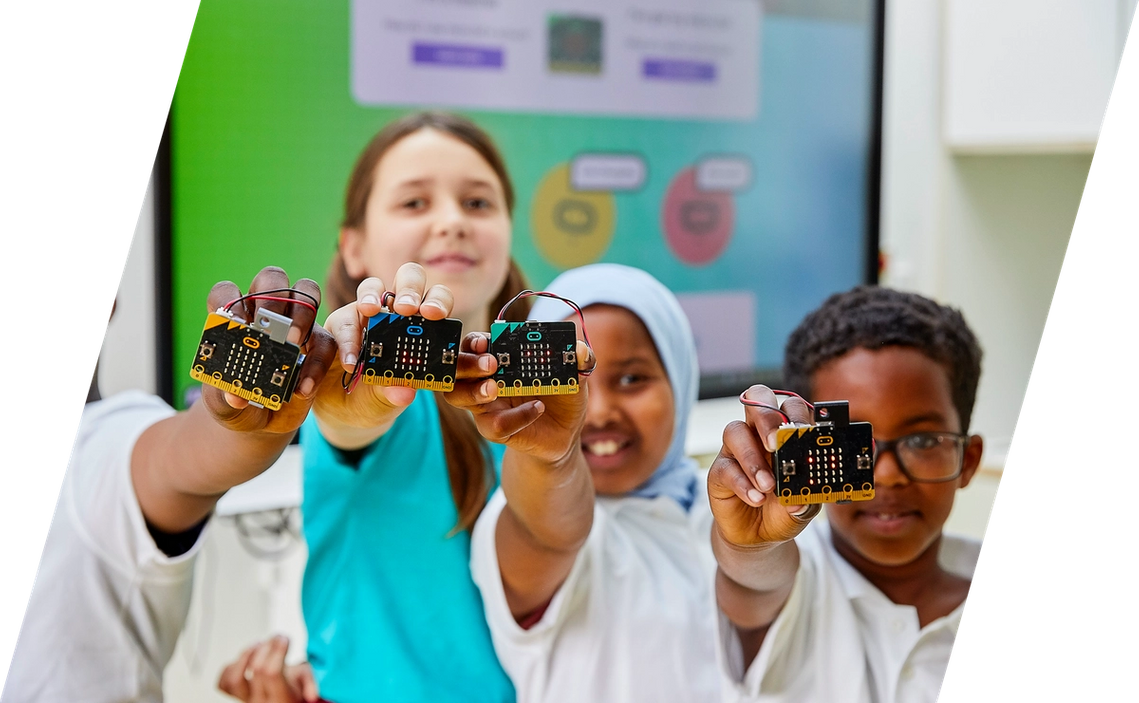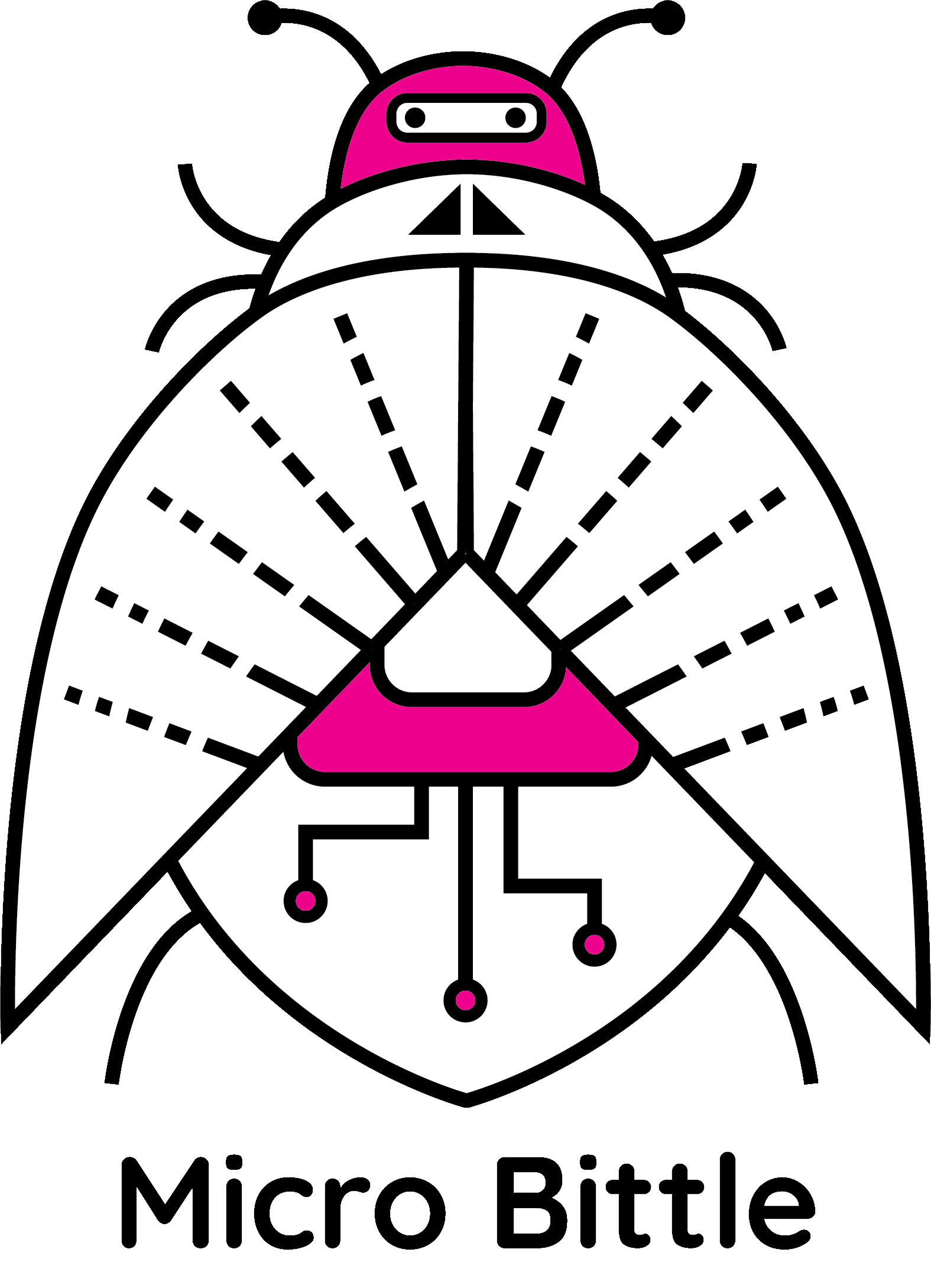Hello! And welcome to Micro Bittle’s blog! We’ll publish weekly updates about our work here, which makes this blog the archive of our semester-long project.
What’s This Project About?
Micro Bittle is integrated by five second-year students at the ETC. When we applied for this project, its description stated the following:
This project will focus on tangible and playful examples of what sensors can do when used with micro:bits in middle school classrooms…
We propose the creation of a virtual game or portable activity station that utilizes micro:bits and related sensors…
Most of us have experience working with micro-controllers such as Arduino boards, which is a big plus for a project that relies so heavily on the use of micro:bits. Additionally, a couple if us also have experience developing ETC projects targeted towards children.

So, overall, we’re excited to create a physical computing experience for middle-schoolers!
Initial Ideas
Ruth Comley, our faculty instructor, joined us on our first team meeting this week. The opportunity allowed us to start brainstorming ideas for the project – the following are a few:
- An escape-room-like experience
- A “bomb-defusing” game (in the style of Keep Talking and Nobody Explodes)
- A game where you manage a control panel with different features
From these suggestions, we decided we want to focus on creating puzzle-like activities for the students. They should feel challenged – the experience shouldn’t be too difficult to get them frustrated, but it should be difficult enough for them to feel satisfied when they reach a solution.
First Client Meeting
We meet our client, Lourdes (Lou) Karas, for the first time this Friday. She has been an ETC client in two previous projects, Wander Math (2021) and Colorize (2022), both of which were very successful. The first was centered around an AR app, and the second was purely based on hardware components. Our project, interestingly enough, will probably combine both software and hardware.
We were pleased to hear that Lou and her team will provide support for us in terms of curriculum and pedagogy for this activity. Her assistants will join some of our meetings, and we were invited to join in on lectures for one of West Liberty’s education courses. Additionally, Lou will help us find playtest groups of sixth grade students, who were defined as our target audience.

Our meeting with Lou was incredibly helpful and enlightening for the beginning of this project. A few points from it are worth highlighting in particular:
- The experience shouldn’t be “one and done” – we must find a way of designing it so it can be replayed or built upon
- We can assume students will be put in groups of two or three
- We can assumes students have access to Chromebooks
With this in mind, we’re ready to continue brainstorming next week.
